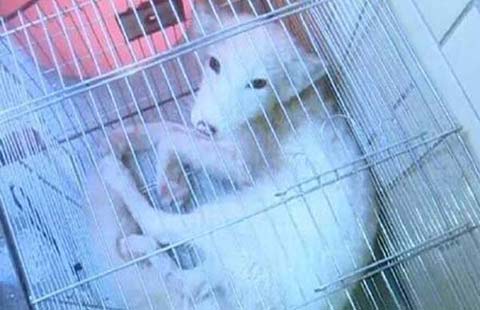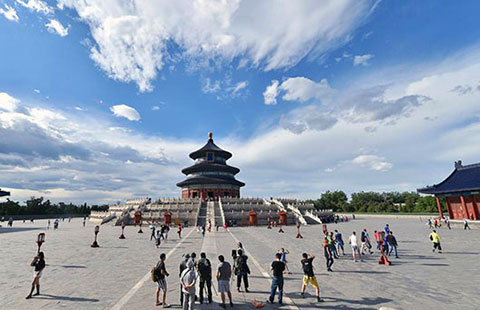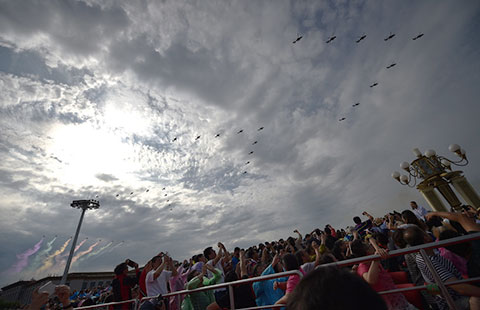Cemetery fabricates illegal tombstones for stars including Yao Ming
(Ecns.cn) Updated: 2015-07-22 17:27An illegal cemetery in a Beijing suburb has tombstones inscribed with names of people who are still alive, ranging from local villagers to basketball icon Yao Ming as well as Taiwan pop stars, Beijing Times reported on Wednesday.
On a tombstone the words "Loving father Yao Ming" are written in golden but with no details as who has set up this tomb. Nearby, another one carries the name of Taiwan pop star Terry Lin.
"There are more than 600 tombstones at Hualongyuan Cemetery in Mayu village of Changping district's Cuicun township, with less than 300 being real, according to a cemetery caretaker.
Some names were carved on the tombstones while others were only written to facililate later carving upon sale, the sixty-year old man said.
When the developer had applied for consent to construct the cemetery, it was said to be for use by local villagers only. However, local government approval was never granted.
Nevertheless, the developer stealthily had the cemetery built and continued to sell burial plots, mostly to outsiders, according to the caretaker.
A noticeable sign at the entrance to the cemetery with four Chinese characters meaning "illegal cemetery" was issued by Changping's civil affairs bureau, along with a smaller one giving a similar warning and issued by the township government.
According to the caretaker, the burial plots carry a price tag of 30,000 yuan to 50,000 yuan, about half the cost of plots at another nearby cemetery.
A court in Changping district on Tuesday opened a trial involving a 59-year-old woman, surnamed Wang, who said her name and those of her grandparents, parents and husband have all been seen on tombstones at the cemetery.
She initially wanted to sue local government authorities, but has since added the developer as a defendant. She asked for the immediate removal of these tombstones, which she said were an infringement on her name and reputation, an apology and more than 100,000 yuan in compensation for personal distress.
Wang said "It's very inauspicious (to have a tombstone built while people are alive) and everybody avoids doing so."
Qi Lianfeng, a lawyer in Beijing, said such a misdemeanor was equal to cursing people and thus infringed upon Wang's reputation.
- Delegation salutes Tibet anniversary
- Officials are told to act as anti-graft watchdogs
- Great Wall safeguarded in united action
- Vice minister pledges more efforts to improve air quality
- Beijing’s efforts to control air pollution start to pay off
- China's military committed to reform
- Netizens rip singer over baby photos
- Central govt's growing support for Tibet
- Monument to be built on Tianjin blast site
- China and Russia seal raft of energy deals







